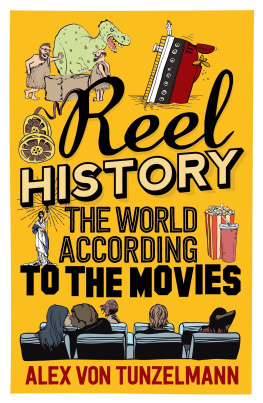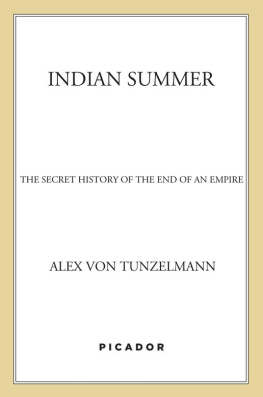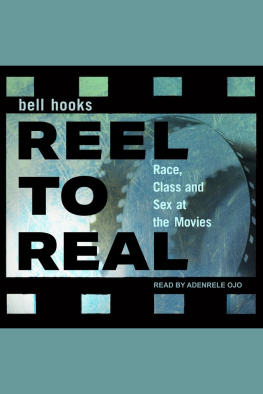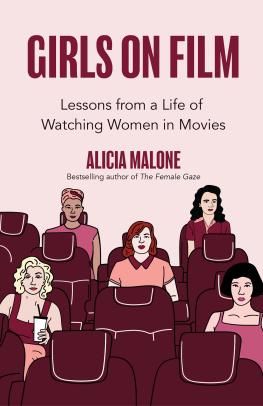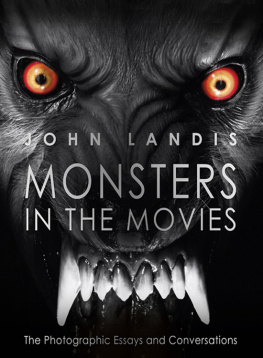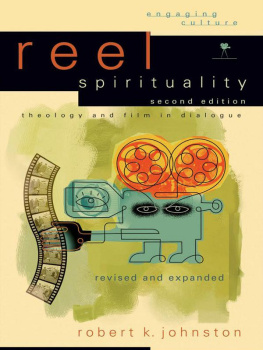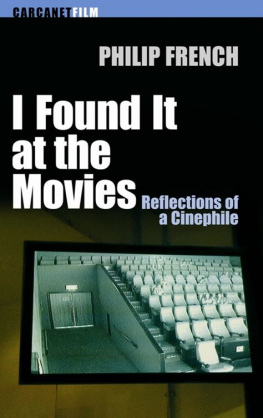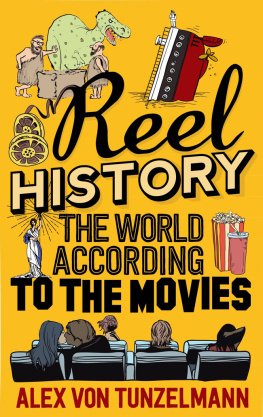REEL HISTORY
Also by Alex von Tunzelmann
Indian Summer: The Secret History of the End of an Empire
Red Heat: Conspiracy, Murder and the Cold War in the Caribbean

First published in hardback in Great Britain in 2015 by Atlantic Books,
an imprint of Atlantic Books Ltd.
Copyright Alex von Tunzelmann, 2015
The moral right of Alex von Tunzelmann to be identified as the author of this work has been asserted by her in accordance with the Copyright, Designs and Patents Act of 1988.
All rights reserved. No part of this publication may be reproduced, stored in a retrieval system, or transmitted in any form or by any means, electronic, mechanical, photocopying, recording, or otherwise, without the prior permission of both the copyright owner and the above publisher of this book.
1 2 3 4 5 6 7 8 9
A CIP catalogue record for this book is available from the British Library.
Hardback ISBN: 978-1-78239-646-8
E-book ISBN: 978-1-78239-647-5
Paperback ISBN: 978-1-78239-648-2
Printed in Great Britain
Atlantic Books
An Imprint of Atlantic Books Ltd
Ormond House
2627 Boswell Street
London
WC1N 3JZ
www.atlantic-books.co.uk
For Eugnie
CONTENTS
INTRODUCTION
W hat would the history of the world look like if you learned it all from watching movies? According to some of the films in this book, birth control pills have been available for 1,600 years; everyone in the Middle Ages could read, but William Shakespeare was illiterate; Scottish rebel Sir William Wallace managed to father King Edward III of England, even though he never met Edwards mother and died seven years before Edward was born; Mozart was murdered by a jealous rival; champions of democracy have included the ancient Mauryan emperor Asoka, the nation of Sparta, Marcus Aurelius, Lady Jane Grey and Oliver Cromwell; the American war in Vietnam was awesome; all American wars were awesome; and a crew of plucky Americans including Jon Bon Jovi captured the first Enigma machine from the Nazis in World War II.
Unless you make an effort to read history books or watch high-quality television documentaries on historical subjects, the chances are that as an adult you will consume all your history from fictional feature films and television dramas. Maybe, if you paid attention in school, youll know they get some things wrong. But it will be difficult to stop deeper and broader misconceptions finding their way into your consciousness.
If you get it from the movies, your history of the world will be strongly focused on Western Europe and North America, and on the doings of white, heterosexual, Christian men of the upper classes. The women you know about will mostly be queens and mistresses, if they have characters at all beyond the ability to wear (and perhaps swiftly remove) sparkly, flimsy outfits. Even when you watch something about, say, ancient Egyptians, Mongols or Arabs, they will frequently be played by white people. Even if you watch films that are not made in Hollywood, this might still be true. In the Pakistani movie Jinnah (1998), Mohammad Ali Jinnah was played by Christopher Lee; in the Libyan movie Lion of the Desert (1981), Sharif al-Ghariyani was played by John Gielgud. Most historical characters will present themselves to you with a comforting simplicity, either as heroes or villains. Most historical stories will seem to have a satisfying beginning, middle and end. The good guys will mostly win, at least morally; for filmmakers know that if you leave the cinema uplifted or invigorated you will recommend the film to your friends. History onscreen becomes legend, myth, fable, propaganda.
Since 2008, Ive been the historian behind Reel History, a column on historical films for the Guardian s website. Every week, I watch one, then try to work out how it relates to the truth of what happened aware, of course, that truth itself is slippery and subjective. Its not always a bad thing to learn about history from films. Ive certainly broadened and deepened my knowledge by watching such fine examples as The Lion in Winter (1968), a razor-sharp Plantagenet comedy with Peter OToole as Henry II and Katharine Hepburn as Eleanor of Aquitaine; The Killing Fields (1984), a moving tale of Cambodia under the Khmer Rouge; Ran (1985), Akira Kurosawas synthesis of King Lear and the real story of sixteenth-century Japanese daimyo Mori Motonari; and Twelve Years a Slave (2013), Steve McQueens searingly brilliant retelling of the story of Solomon Northup. In all of these cases, and many more, filmmakers have taken resonant stories and told them within a setting of well-researched period detail which does not suffocate meaning but enhances it. They get the facts right, or approximately right; but they also go beyond a simple retelling of the facts to find poignancy, tragedy, drama or humour. These films have a feeling for their time, but also a sense of what matters in ours.
Many filmmakers go to great lengths in pursuit of accuracy. Historian Justin Pollard has consulted on films including Elizabeth (1998) as well as the TV series The Tudors and Vikings . He spent two years researching Vikings from primary sources. We translate lines into Old Norse and Old English, use pre-Conquest missals for religious scenes and reconstruct locations and events from contemporary chronicles inasmuch as thats possible in the ninth century! he told me. We do make mistakes but often what are called mistakes are conscious decisions made for reasons of budget, logistics or narrative, like compressing time frames, shooting in a different location to the actual event, or reducing the cast of characters.
Reel History goes easy on such mistakes that are really just storytelling choices. Real life doesnt fit neatly into three-act structures, nor into the approximately 90240-minute run-time of feature films. Most filmmakers working in a commercially driven industry have to work within these conventions. Restructuring stories to be more compelling and more easily understood is part of a screenwriters job.
Changes that have been made for deliberate comic effect dont tend to get slapped down in Reel History either, if theyre funny. Greg Jenner was historical consultant to the terrifically enjoyable Horrible Histories TV series, beloved of many usually serious historians. We had to balance the post-modern comic whimsy, complete with time-travelling devices and modern TV references, with communicating 4,000 historical facts, and then flagging up which were the jokes and which were the true bits, he says. We had a puppet rat to do that. In one of my favourite semi-historical films, Bill & Teds Excellent Adventure (1989), two Californian teenagers with a time machine establish that Napoleon is a short dead dude, Julius Caesar is a salad-dressing dude, and Genghis Khan is a dude who, 700 years ago, totally ravaged China. Some of us passed History GCSE with less. Jenners masters thesis was on the reactions of medieval historians to films about King Arthur: Everyone decided Monty Pythons Holy Grail was the best because its full of historical in-jokes.
Humour is vital in helping us engage with the past, adds Professor Kate Williams, who presents history programmes on radio and TV. Even if historical films are inaccurate, they get audiences involved. Justin Pollard agrees: I hope historical drama serves as an inspiration for people to go and find out more. If you look at how well sales of popular Tudor history books did after The Tudors then I think that was the case.

